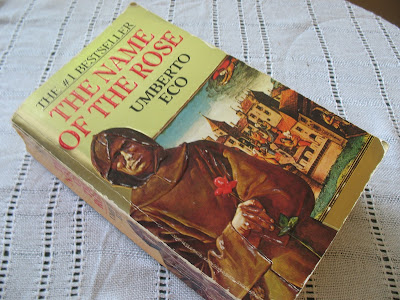Sequel to Startide Rising
I couldn’t remember much about this novel before I re-read
it. I had remembered a fair amount about Startide
Rising, but The Uplift War just
didn’t stick with me. I remembered the Uplifted chimpanzees and some of the
aliens, but really very little about the story.
Anyway, while this is a follow-up to Startide Rising and the conflicts are a consequence of the events
of that novel, we are introduced to a new group of characters with a different
set of problems. They know little of the fate of the crew of Streaker and little about why they
caused such a problem with the rest of the citizens of the known universe in
the first place. The magnitude of those new protagonists’ challenges, however,
is as big as can be expected from a well-crafted science fiction setting.
Humanity continues to be full of surprises as do the earth
species they continue to genetically modify with a goal of reaching a high
level of intelligence. It’s the resilience of this so-called “wolfling” race
that makes the earth continue to matter in such a big universe. And why humans
and earth should matter is something important that we explore by writing and
reading science fiction. Brin’s optimistic view of our place in an infinity of
space and time and the complexity of the themes of evolution (aided or
otherwise), civilization and society, and planetary stewardship make The Uplift War thought provoking as well
as highly entertaining.
There is just one area in which I have a hard time
suspending my disbelief. As humans are improving themselves in this future
universe, they are developing psychic powers, one of the very few speculative items
in the book not extrapolated from any documented science. I wonder why authors
do this, since is seems to me like adding a fantasy component to an otherwise “hard-science
fiction” novel. Perhaps like spaceships and faster-than-light travel and
otherworldly neighbors it’s just something we wish we had but do not, something
that would make future humans bigger and better than we are today. Personally, I’d
settle for world peace as a human achievement over psychic powers, but I
suppose that wouldn’t make for a very interesting science fiction story.
A Year of Books I’ve Read Before

